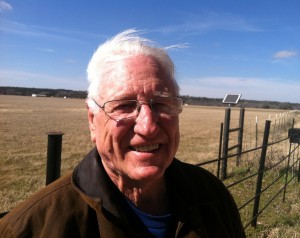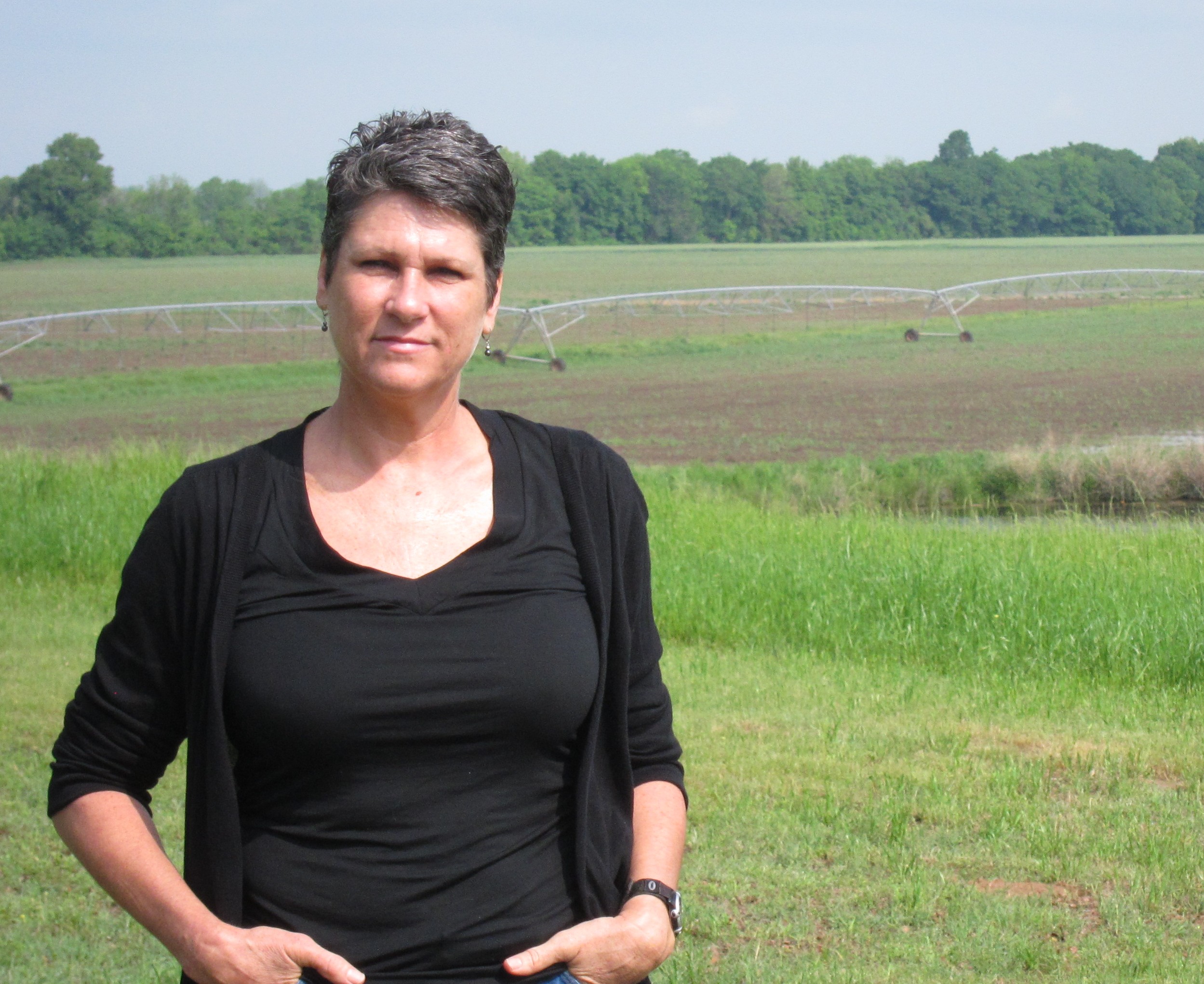Why You Should Pay Attention to the Race for Railroad Commission

Photo by Mose Buchele
Charles Matthews served on the Railroad Commission of Texas from 1995 to 2005, including time as Chairman.
In an often-quoted scene from the 2007 movie There Will Be Blood, sociopathic oilman Daniel Plainview meets his rival for the last time. If oil fields are like milkshakes, he says, it pays to have a straw that reaches all the way across the room “and starts to drink your milkshake.”
“I. Drink. Your. Milkshake,” Plainview screams maniacally, “I DRINK IT UP!!!!”
This year, Texans will have the chance to vote for a seat on the Railroad Commission of Texas. But the commission has a lot more to do with milkshakes than railroads. It regulates oil and gas in Texas.
“The commission acts like a court,” Charles Matthews explains. Matthews served on the three-member commission from 1995 to 2005, before stepping down to become Chancellor of Texas State University.
That three-person “court” often decides on disputes between oil and gas drillers, to make sure nobody drinks anyone else’s milkshake.
“The oil business is a lot about ‘Close-ology:’,” Matthews says. “The closer you can get, the better chance you have of hitting a well.”
Much More than Milkshakes
While settling disputes between drillers may be one of the most important commission functions from the industry’s perspective, there are plenty of other reasons to pay attention to the race. After all, it regulates huge swaths of the Texas oil, gas and mining industries.
“You know the thing that just terrified me the most was the pipelines,” Matthews recalls.
He says there were 260 thousand miles of pipeline in the state when he served. He worried about leaks or explosions all the time, because “you’ve got inspectors out there, but there’s not any way in the world that anybody can monitor every day all of the time 260 thousand miles of that pipe underground.”
Forget About the Railroads
By regulating Texas oil and gas, the commission also has authority over one of the country’s most powerful economic engines. Of course, there are things the Railroad Commission does not control, like the aforementioned railroads. The name is a historic artifact from the early days of the agency, one that lawmakers can’t seem to change, no matter how often they try.
“You know, the legislature came very close to changing it this last time,” Matthews recalls, “But the industry just raised Cain. They like the fact that a name is so unique. It’s special to Texas. Texas is just a different place. They don’t want to change it.”
Many observers point to a reason beyond “tradition” for keeping a name so unrelated to the functions of the agency.
“People who get their livelihood from oil and gas would just assume not have the name changed,” David Prindle, Professor of Political Science at the University of Texas at Austin, says. “Partly for reasons of tradition, and partly because it’s not well known in the rest of the state what exactly it does. And that’s not necessarily a bad thing if you want to influence the commission.”
Prindle wrote a book on the Railroad Commission in the early eighties: Petroleum, Politics and the Texas Railroad Commission. The book looks at the relationship between oil and gas companies -he calls them “producers” – and the commission that regulates them.
“What I discovered was that because the homegrown producers finance Railroad Commission elections through campaign contributions, essentially they are the constituency of commissioners,” Prindle says.

Photo by Sam Ortega/KUT
Barry Smitherman, chair of the Railroad Commission, is running for State Attorney General.
And what was true in the eighties remains true today: the commission is known for being friendly to the industry it is charged with regulating. In fact, most people who serve on or run for the commission are pretty up front about their view that the oil and gas business is not just as an industry to be regulated, but is a constituency to be served.
“There’s no question that you know the industry,” says former Commissioner Matthews. “I mean, you’re talking to the industry all the time. They’re the only people who have any interest in what you’re trying to say.”
That’s starting to change.
A New Interest in the Commission
As today’s energy boom impacts the daily lives of more people with no direct link to oil and gas drilling, more everyday Texans are starting to take notice of the Railroad Commission.
In the last few years, for example, residents in a U.S.-Mexico border town, concerned about mining operations, have lobbied the commission to deny the mining company permits (those permits were granted). Homeowners in North Texas, worried about the surge in earthquakes that has accompanied drilling activities, have also gone to the Commission looking for answers.
Yet such petitioners often leave disappointed.
“In history, when protecting the environment has been in the interest of Texas producers, they protect the environment,” says Prindle of UT Austin. “But when the interest of the producers has run contrary to protecting the environment, the Railroad Commission is much less likely to protect the environment.”
The commission also grants companies the power to take land through eminent domain in some instances. That’s something that’s earned it a lot of attention from landowner groups, and thrown the commission into the middle of a statewide debate over property rights.
One final reason you should pay attention to who is running for the commission? When you’re voting for commissioner, you may be voting for a future candidate for Governor, Lt. Governor or Attorney General. People who serve on it often seek higher office later in their careers.
“When you are a commissioner, you make a wide variety of acquaintances among rich people, from millionaires to billionaires,” Prindle says. “Therefore you can count on a certain amount of money if you run for Governor or Lieutenant Governor or something else.”
But that financing doesn’t always translate into victory. Barry Smitherman, current chair of the Railroad Commission, is giving up his seat to run for Attorney General. But he’s in distant third at the moment, according to the latest University of Texas/Texas Tribune poll, and will need to get at least second place to make it to the primary runoff in May.
Other commissioners who have recently sought higher office have also fizzled out. Elizabeth Ames Jones, former chair of the commission, ran for State Senate in 2012 but never made it past the primary. She now works in Washington for the lobbying firm Patton Boggs. Former commissioner Michael Williams ran for Congress that same year and lost, placing fifth in the Republican primary. (He’s since been appointed Commissioner of Education.)
“We already knew that money could get you a lot, but not everything,” Prindle says.




